Table of Contents
In the realm of classic board games, one character stands out as an emblem of capitalism, wealth, and strategic gameplay – the Monopoly Man.
Instantly recognizable with his top hat, monocle, and twirled mustache, this iconic figure has transcended the boundaries of the game board to become a symbol deeply embedded in popular culture. In this exploration, we unravel the layers of the Monopoly Man, dissecting the origins, cultural impact, and enduring relevance of this enigmatic persona.
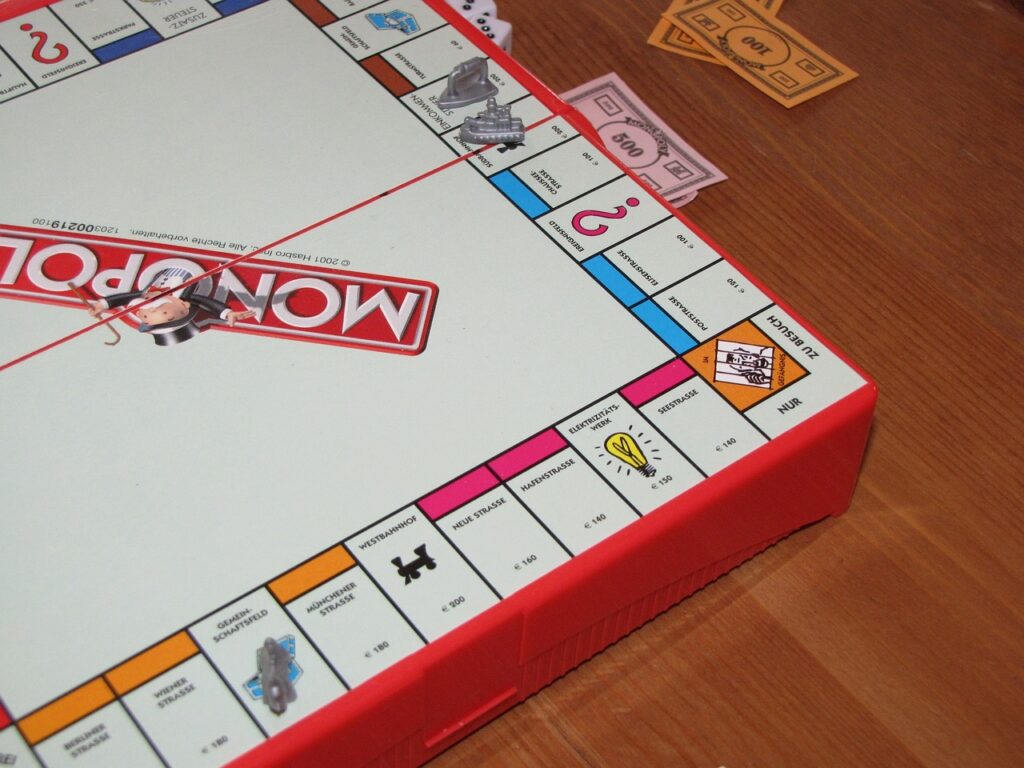
The Origins of Monopoly Man
The Monopoly Man made his debut in 1936 when the Parker Brothers released the popular board game “Monopoly.” Created by Charles Darrow during the Great Depression, the game was designed to provide players with a thrilling escape into the world of real estate and finance. The character of the Monopoly Man, also known as Rich Uncle Pennybags, was introduced as the game’s mascot, representing the embodiment of wealth and success.
Iconic Symbolism: Monopoly Man’s Features
- Top Hat and Monocle: The Monopoly Man’s top hat and monocle are unmistakable symbols of affluence and sophistication. These accessories underscore the game’s theme of acquiring wealth through strategic property investments and financial acumen.
- Twirled Mustache: The twirled mustache adds a touch of whimsy to the Monopoly Man’s appearance. While not directly tied to financial prowess, it contributes to the character’s memorable and distinctive look.

Cultural Impact of Monopoly Man
Over the decades, the Monopoly Man has transcended his board game origins to become a cultural phenomenon. The character’s image has been widely used in various contexts to comment on wealth, inequality, and the intricacies of the economic system. Here are some notable instances:
- Protest and Activism: The Monopoly Man has become a powerful symbol in protests and demonstrations, particularly those focused on economic inequality. Activists have donned costumes resembling the character to draw attention to issues surrounding wealth distribution and corporate power.
- Internet Memes: In the age of the internet, the Monopoly Man has found new life as a meme. His image is often humorously incorporated into memes and online content, serving as a satirical commentary on wealth-related topics.
- Media and Advertising: The Monopoly Man has been featured in various forms of media, including movies, TV shows, and advertisements. His image is frequently employed to convey themes related to finance, business, and success.
The Enduring Relevance
The continued popularity and recognition of the Monopoly Man can be attributed to several factors:
- Timeless Design: The character’s classic design has stood the test of time. The combination of the top hat, monocle, and twirled mustache creates a visual identity that remains instantly recognizable even decades after its inception.
- Universal Themes: Monopoly, as a game, taps into universal themes of wealth, strategy, and competition. The Monopoly Man, as the face of the game, encapsulates these themes and resonates with players across generations.
- Cultural Commentary: The Monopoly Man’s adaptability as a symbol allows for nuanced cultural commentary. Whether used in protests or online memes, the character provides a visually impactful way to engage with discussions on wealth, power, and societal structures.
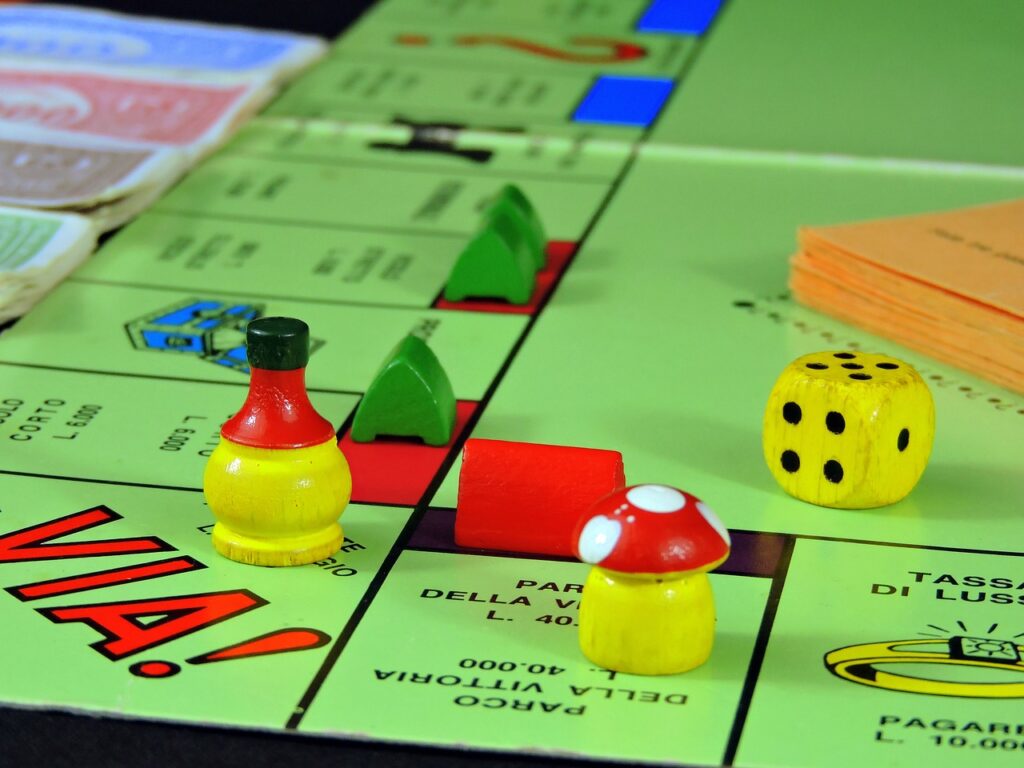
The Birth of a Board Game Icon
The story of the Monopoly Man begins with the birth of the iconic board game in 1936. Created by Charles Darrow during the Great Depression, Monopoly aimed to provide players with an immersive experience in the world of real estate and finance. As the game’s official mascot, the Monopoly Man, also known as Rich Uncle Pennybags, was introduced to symbolize wealth, success, and the strategic pursuit of prosperity.
Monopoly Man’s Timeless Design: A Visual Analysis
Delve into the enduring visual appeal of the Monopoly Man. With his top hat, monocle, and twirled mustache, this classic design has stood the test of time. This visual analysis explores the deliberate choices behind the character’s appearance and how these elements contribute to the lasting recognition and impact of the Monopoly Man.
Unveiling the Symbolism: Top Hat, Monocle, and Twirled Mustache
Unlock the symbolic significance behind the Monopoly Man’s signature features. The top hat and monocle represent affluence and sophistication, while the twirled mustache adds a whimsical touch. Dive into the rich symbolism embedded in these visual elements, shedding light on the character’s role in conveying themes of wealth and strategy.
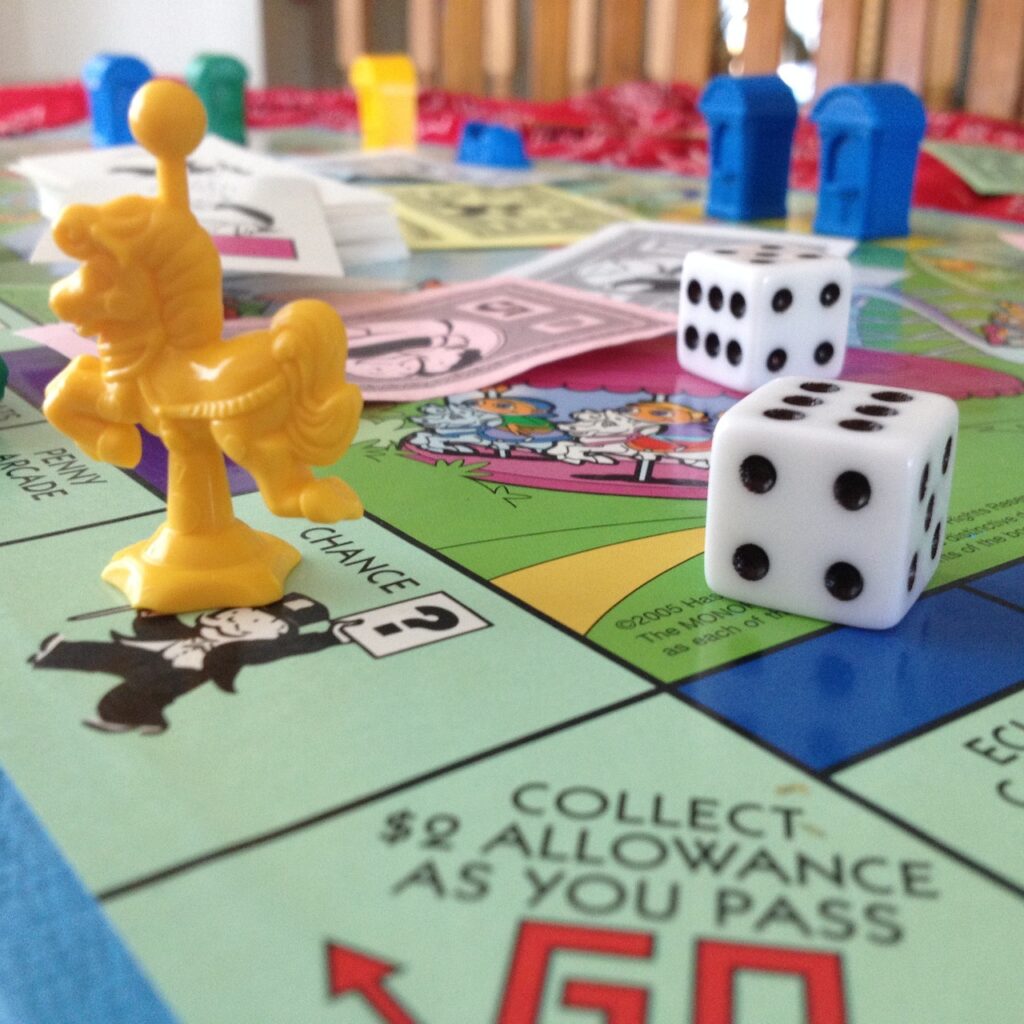
1936 and Beyond: The Evolution of Monopoly Man
Trace the evolution of the Monopoly Man from his debut in 1936 to his continued prominence today. Explore how the character has adapted and evolved while remaining a constant symbol of the game’s core themes. This historical journey unveils the Monopoly Man’s enduring relevance across generations.
Cultural Resonance: Monopoly Man in Protests and Activism
Discover the Monopoly Man’s role as a symbol of protest and activism. Explore instances where activists have adopted the character’s image to draw attention to issues of economic inequality. This section delves into the character’s unexpected transformation into an emblem of social commentary and advocacy.
Meme Magic: Monopoly Man in the Digital Age
Venture into the digital realm where the Monopoly Man has become a meme sensation. This section explores the character’s humorous and satirical use in online content, showcasing how the iconic figure has seamlessly transitioned into the internet age, offering a fresh perspective on wealth-related topics.
From Board to Screen: Monopoly Man’s Presence in Media
Examine the Monopoly Man’s journey from the board to the big screen. This section highlights the character’s appearances in movies, TV shows, and advertisements, showcasing how his image has permeated various forms of media. Uncover the diverse ways in which the Monopoly Man continues to make a visual impact in popular culture.
Why the Monopoly Man? Exploring the Universality of Themes
Delve into the universal themes that make the Monopoly Man an enduring symbol. Explore why this character resonates across different cultures and generations, transcending the boundaries of a board game. Understand how the Monopoly Man taps into fundamental aspects of wealth, strategy, and competition that resonate with a broad audience.
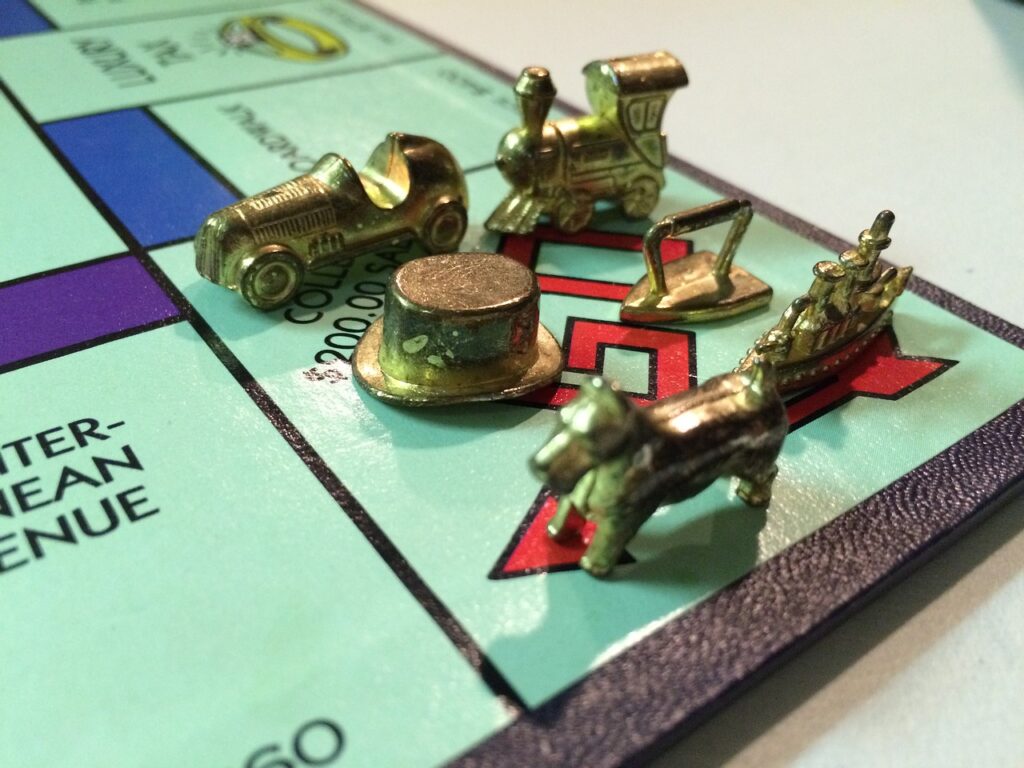
The Adaptability of an Icon: Monopoly Man in Various Contexts
Explore the versatility of the Monopoly Man as a symbol. This section examines how the character’s adaptability allows for nuanced cultural commentary. Whether in protests, memes, or advertising, the Monopoly Man’s image remains a powerful tool for engaging in discussions on wealth, power, and societal structures.
Legacy and Lessons: Monopoly Man’s Continued Relevance
Conclude the exploration with an analysis of the Monopoly Man’s lasting legacy and the lessons embedded in his character. Reflect on why this board game icon continues to hold cultural significance and consider the ongoing impact of a fictional character in shaping our understanding of wealth, success, and the economic landscape.
FAQs
Did the Monopoly Man ever wear a monocle?
Contrary to popular perception, the Monopoly Man, also known as Rich Uncle Pennybags, has never worn a monocle. The iconic board game character is typically depicted with a top hat, a suit adorned with a bowtie, and a twirled mustache. The misconception of a monocle may arise from a common stereotype associated with wealthy and sophisticated individuals during the early to mid-20th century, as many similar characters from that era were portrayed with a monocle.
It’s interesting to note how collective memory and cultural representations can sometimes contribute to the creation of false details about well-known figures, even those as ubiquitous as the Monopoly Man. The accurate depiction of the character includes the top hat, suit, and mustache, but the monocle is not part of his iconic look.
What is the Mandela effect monocle?
The Mandela Effect refers to a phenomenon in which a large group of people collectively misremembers a fact or event. It is named after Nelson Mandela, as a significant number of people falsely remembered him dying in prison in the 1980s, when, in reality, he was released in 1990 and went on to become the President of South Africa.
The Mandela Effect is often discussed in the context of pop culture and common misconceptions. One notable example is related to the misconception that certain iconic characters, including the Monopoly Man, wore a monocle when, in fact, they did not.
In the case of the Monopoly Man, many people incorrectly remember him wearing a monocle. The image of a wealthy and sophisticated character with a monocle has become a cultural stereotype, and this false memory has contributed to the Mandela Effect surrounding the Monopoly Man’s appearance.
It’s a fascinating aspect of how collective memory and cultural influences can shape our perceptions and lead to shared misconceptions. The Mandela Effect highlights the malleability of memory and how widely accepted false memories can become ingrained in popular consciousness.
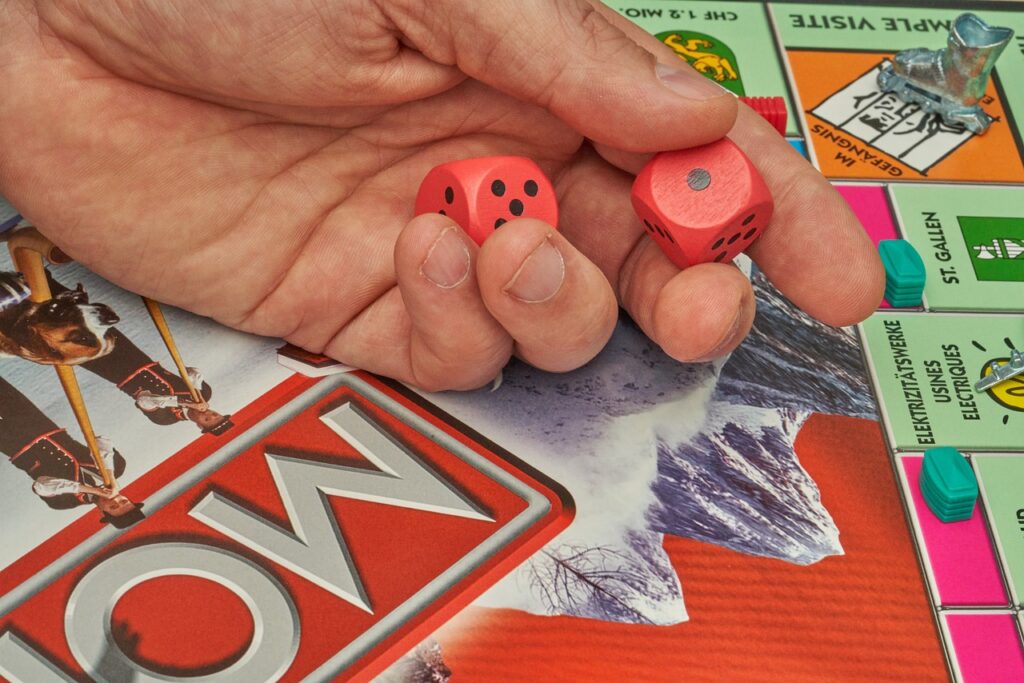
What does the Monopoly Man symbolize?
The Monopoly Man, also known as Rich Uncle Pennybags, is the iconic mascot of the popular board game Monopoly. Symbolically, this character represents several key themes associated with the game and broader cultural and economic concepts. Here are some of the symbolic meanings associated with the Monopoly Man:
- Wealth and Prosperity: The Monopoly Man is a symbol of affluence and financial success. Dressed in formal attire, wearing a top hat, and often depicted with bags of money, the character embodies the pursuit of wealth that is central to the gameplay of Monopoly.
- Capitalism and Business Acumen: As the face of a game centered around buying, selling, and trading properties, the Monopoly Man symbolizes the principles of capitalism and strategic business decision-making. Players engage in competitive economic activities to accumulate wealth, and the character represents the entrepreneurial spirit of these endeavors.
- Strategic Decision-Making: The Monopoly Man is associated with the strategic aspects of the game. Players must make shrewd decisions about property acquisition, development, and negotiation to outmaneuver opponents. The character’s presence reinforces the importance of strategic thinking in the pursuit of financial success.
- Financial Prudence and Investment: Monopoly involves making wise financial decisions, including investing in properties and managing resources effectively. The Monopoly Man, with his wealth and business attire, serves as a symbol of financial prudence and the rewards that come from astute investment.
- Cultural Commentary on Wealth: Beyond the board game, the Monopoly Man has been adapted and used in various contexts to provide cultural commentary on wealth, income inequality, and corporate power. Activists, artists, and meme creators have employed the character to convey messages about economic and social issues.
- Nostalgia and Pop Culture: For many, the Monopoly Man carries a sense of nostalgia, representing a classic and enduring board game that has been enjoyed by generations. The character has become a recognizable figure in popular culture, evoking memories of family game nights and the timeless appeal of Monopoly.
- Icon of Board Game Culture: As the official mascot of Monopoly, the Monopoly Man has become an enduring symbol of board game culture. His image is synonymous with the classic game and its impact on social interactions, family dynamics, and entertainment.
While the Monopoly Man’s primary symbolism is tied to the themes within the Monopoly game, his adaptability and recognition have allowed for broader cultural interpretations, making him a versatile symbol in discussions about wealth, strategy, and economic systems.
Which country banned Monopoly?
At the moment, no country has outright banned the board game Monopoly. Monopoly is a widely popular game played in numerous countries around the world, and it has not been subject to widespread bans. You can play Monopoly for free on the internet.
Conclusion
The Monopoly Man, with his top hat, monocle, and twirled mustache, has transcended the confines of the game board to become a cultural icon deeply embedded in our collective consciousness. From protests to internet memes, this enigmatic character continues to serve as a symbol of wealth, power, and the intricate dance of capitalism. As we navigate the complexities of our economic landscape, the Monopoly Man stands as a timeless reminder of the enduring impact of a board game character on our cultural narrative.
